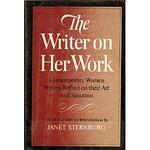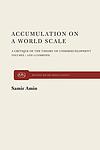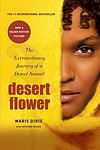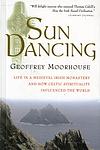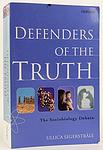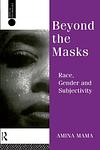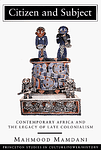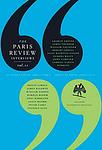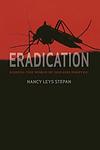The Greatest Unknown "Nonfiction" Books Since 1900
Click to learn how this list is calculated.
This list represents a comprehensive and trusted collection of the greatest books. Developed through a specialized algorithm, it brings together 284 'best of' book lists to form a definitive guide to the world's most acclaimed books. For those interested in how these books are chosen, additional details can be found on the rankings page.
Genres
Countries
Date Range
Reading Statistics
Click the button below to see how many of these books you've read!
Download
If you're interested in downloading this list as a CSV file for use in a spreadsheet application, you can easily do so by clicking the button below. Please note that to ensure a manageable file size and faster download, the CSV will include details for only the first 500 books.
Download-
1. Night by Elie Wiesel
This book is a memoir of the author's experiences during the Holocaust, specifically in the Auschwitz and Buchenwald concentration camps. The narrative focuses on the relationship between a father and son under the most extreme circumstances, the loss of faith in God, humanity, and in each other, and the horrifying reality of the systematic genocide of six million Jews during World War II. The book is a poignant and stark examination of the depths of human evil and the enduring power of hope and survival.
-
2. Mythology by Edith Hamilton
This book is a comprehensive guide to ancient Greek, Roman, and Norse mythologies, providing detailed accounts of various gods, goddesses, heroes, and other mythological creatures. It includes well-known stories like the Odyssey and the Iliad, along with lesser-known tales, and analyzes their significance in the cultures they originated from. The book also delves into the origins of these myths and their influence on later civilizations, offering readers a deep understanding of ancient cultures and their belief systems.
-
3. The Writer on Her Work by Janet Sternburg
"The Writer on Her Work" is a collection of essays by various female authors who discuss their experiences, challenges, and perspectives on writing. The book explores the complexities of being a woman in the literary world, shedding light on topics such as gender bias, the struggle for recognition, and the balance between personal life and professional aspirations. It provides a unique insight into the creative process, revealing how these women navigate their craft amidst societal expectations and personal obstacles.
-
4. All But My Life by Gerda Weissmann Klein
"All But My Life" is a poignant memoir of a young woman's six-year ordeal as a victim of Nazi cruelty. The narrative follows her life from a peaceful, upper-middle-class childhood in Bielitz, Poland, through her horrifying experiences and loss during the Holocaust, to her miraculous survival and marriage to an American soldier. It is a story of courage, resilience, and the enduring power of hope.
-
5. Power Politics by Martin Wright
"Power Politics" is a comprehensive analysis of the dynamics of power in international relations. The book delves into the ways in which states interact with one another, the influence of power on these interactions, and the role of both military and economic strength in determining political outcomes. It examines the balance of power theory, the impact of alliances, and the strategies nations employ to enhance their influence on the global stage. The author also explores the implications of power politics for world peace and the potential for cooperation among nations in an environment often characterized by competition and conflict.
-
6. E=Mc2 by David Bodanis
The book provides a layperson-friendly explanation of the world's most famous equation, delving into the history, science, and people behind its development. It explores the biographies of the scientists who contributed to our understanding of energy and mass, including the equation's originator, and the practical and philosophical implications of the equation's assertion that energy and mass are interchangeable. The narrative also discusses the equation's role in the development of atomic energy and its impact on modern physics, offering an accessible journey through the annals of scientific thought and the revolutionizing discoveries that shape our understanding of the universe.
-
7. Accumulation On A World Scale by Samir Amin
"Accumulation On A World Scale" by Samir Amin is a thought-provoking analysis of the global capitalist system and the dynamics of accumulation. Amin explores the historical development of capitalism, its inherent contradictions, and the ways in which it perpetuates inequality and exploitation on a global scale. He argues that the capitalist system is fundamentally flawed and unsustainable, offering alternative perspectives on economic development and proposing radical changes to create a more equitable and just world.
-
8. An Imagined World by June Goodfield
"An Imagined World" is a poignant exploration of the human condition, set against the backdrop of World War II. The narrative delves into the life of a young woman who, amidst the chaos and destruction of the war, finds herself in a remote English village. There, she grapples with the complexities of love, loss, and the search for personal identity. As she interacts with the villagers and refugees who have also sought sanctuary, the protagonist confronts the harsh realities of the world outside while navigating the intricate web of human relationships and the enduring hope for a better future. The book is a testament to the resilience of the human spirit and the power of imagination as a source of comfort and escape in times of turmoil.
-
9. Averroes by George F. Hourani
This book provides a comprehensive study of Averroes, a seminal Islamic philosopher from the medieval period, known for his profound influence on both the Islamic and Christian intellectual worlds. The text delves into Averroes' life, his philosophical and theological ideas, and particularly his commentaries on Aristotle, which played a crucial role in shaping medieval scholasticism. The author explores how Averroes' attempts to harmonize philosophy with Islamic theology sparked significant debates and how his ideas were received, critiqued, and integrated into European thought, thereby leaving a lasting legacy on the development of Western philosophy and science.
-
10. The Padārthatattvanirūpaṇam Of Raghunātha śiromaṇi by Karl H. Potter
"The Padārthatattvanirūpaṇam of Raghunātha Śiromaṇi" is a critical examination and translation of a seminal work in Indian philosophy by Raghunātha Śiromaṇi, who was a prominent figure in the Navya-Nyāya school. This book, authored by Karl H. Potter, provides an in-depth analysis of Raghunātha Śiromaṇi's thoughts on metaphysics, focusing on the nature of reality and categorization of existence. Potter's work not only translates the original text but also contextualizes it within both historical and philosophical frameworks, offering insights into the development of Indian philosophical thought and its intricate argumentative techniques.
-
11. The Samaritan Treasure by Marianne Luban
"The Samaritan Treasure" is an intriguing historical novel that delves into the ancient world, weaving a tale of mystery and adventure around the biblical account of the Good Samaritan. The narrative follows an archaeologist who stumbles upon a clue to the legendary treasure of the Samaritans, leading to a thrilling quest that spans continents and centuries. As the protagonist deciphers ancient texts and navigates dangerous liaisons, the story explores themes of faith, cultural heritage, and the enduring allure of hidden riches. The novel is a blend of meticulous historical research and imaginative storytelling, offering readers a captivating journey through time and the human spirit's quest for discovery.
-
12. Desert Flower by Waris Dirie, Cathleen Miller
"Desert Flower" is a powerful autobiography that tells the story of a girl born into a nomadic tribe in the Somali desert. The girl, subjected to the brutal tradition of female genital mutilation at a young age, escapes an arranged marriage at 13 and ends up in London, where she works various jobs before being discovered as a model. Her rise to fame in the fashion industry is juxtaposed with her personal journey to raise awareness about the harmful cultural practice she endured and advocate for its eradication.
-
13. The Man Who Loved Only Numbers by Paul Hoffman
"The Man Who Loved Only Numbers" is a captivating biography that delves into the life of a brilliant mathematician. From his early years as a child prodigy to his groundbreaking contributions in number theory, the book explores the eccentricities and obsessions that consumed his life. With a unique blend of mathematical concepts and personal anecdotes, the biography paints a vivid portrait of a man who was truly devoted to the world of numbers.
-
14. Sun Dancing by Geoffrey Moorhouse
"Sun Dancing" presents a vivid tapestry of medieval Irish monasticism, combining historical facts with imaginative storytelling. The book delves into the austere and spiritually intense lives of monks on Skellig Michael, a remote island off the Irish coast, during the early centuries of Christianity in Ireland. Through a blend of narrative and analysis, the text explores the harsh realities of monastic life, the cultural and religious contributions of these communities, and the broader context of Irish and European history during this period. The author weaves together the daily routines, spiritual practices, and legendary tales of these monks, providing a window into a world where faith and endurance converge amidst the isolation of the Atlantic Ocean.
-
15. Why Not Me? by Wendy L. Bovard
"Why Not Me?" is a poignant memoir that delves into the author's personal journey through adversity and resilience. It explores the challenges faced when life takes unexpected turns, such as dealing with illness, loss, and the search for self-identity. The narrative is a testament to the human spirit's capacity to overcome obstacles and find meaning in the face of hardship. With honesty and vulnerability, the author shares her experiences, offering insights and inspiration to others who may be navigating their own paths through difficult times, ultimately asking the universal question of why some are chosen to endure certain trials and how they can emerge stronger.
-
16. Defenders Of The Truth by Ullica Segerstrale
This book provides a comprehensive examination of the sociobiology debate, a contentious discussion that emerged in the 1970s and 1980s regarding the application of evolutionary theory to human behavior. It delves into the intellectual clash between prominent scientists and scholars, exploring the ideological, academic, and political tensions that fueled the debate. The narrative not only charts the historical development and key arguments of both sides but also scrutinizes the broader implications of this debate for the scientific community and society at large. Through detailed analysis and interviews, the work sheds light on the complexities of scientific discourse, the role of science in society, and the intricate interplay between scientific inquiry and ethical considerations.
-
17. Beyond The Mask, Race, Gender And Identity by Amina Mama
In this thought-provoking book, the author delves into the complex intersections of race, gender, and identity. Through a combination of personal narratives, historical analysis, and social theory, Mama explores how these constructs shape and influence our lives. She challenges conventional ideas and offers a critical examination of power dynamics, highlighting the ways in which race and gender intersect to create unique experiences and oppressions. With a focus on African women's experiences, Mama calls for a reimagining of identity that goes beyond simplistic categorizations, and instead embraces the complexity and fluidity of human existence.
-
18. Citizen And Subject by Mahmood Mamdani
"Citizen and Subject" explores the complex relationship between citizenship and identity in postcolonial Africa. The author critically examines the concept of citizenship as a tool for exclusion and domination, particularly in the context of colonial and postcolonial states. Through a comprehensive analysis of case studies from Uganda and South Africa, Mamdani delves into the historical processes that have shaped the formation of citizenship and subjecthood, shedding light on the enduring legacies of colonialism and the challenges faced by marginalized groups in attaining full citizenship rights.
-
19. The Sense Of An Ending by Frank Kermode
In "The Sense of an Ending," the author delves into the ways in which humans impose artificial structures and narratives on life's chaos to create a sense of order and meaning. The work explores our perception of time and our incessant need to segment it into beginnings, middles, and ends, much like the structure of a conventional story. By examining various literary and philosophical traditions, the text reveals our collective desire for resolution and how this shapes our understanding of history and our personal lives. The author argues that while this narrative ordering is a natural human impulse, it often leads to simplified and distorted perceptions of reality.
-
20. Kiswahili, Past, Present And Future Horizons by Rocha Chimera
"Kiswahili, Past, Present And Future Horizons" explores the rich history, current state, and potential future of the Kiswahili language. The book delves into the origins and development of Kiswahili, highlighting its significance as a lingua franca in East Africa. It examines the language's role in literature, education, and communication, while also addressing the challenges and opportunities it faces in a rapidly changing global landscape. Through insightful analysis and compelling examples, the author presents a comprehensive overview of Kiswahili's past achievements and its promising prospects for continued growth and influence.
-
21. Global Health by Ann Lindstrand
This book provides a comprehensive overview of global health, addressing the key issues, challenges, and strategies involved in improving health outcomes worldwide. It delves into the determinants of health, the burden of diseases, and the complex interplay between health, economic development, and social factors. The text emphasizes the importance of a multidisciplinary approach, incorporating perspectives from epidemiology, public policy, and international relations, to tackle the global health disparities and pave the way towards achieving equity in health for all populations. Through case studies and analysis of current trends, the book offers insights into the roles of various stakeholders, including governments, NGOs, and the private sector, in advancing public health goals on a global scale.
-
22. The Paris Review Interviews by Paris Review
The book is a collection of in-depth, personal interviews with some of the greatest literary minds of the 20th century. It provides a unique insight into their creative processes, inspirations, and struggles. The discussions delve into their thoughts on the craft of writing, their individual approaches to storytelling, and the personal experiences that have shaped their works. This book is a valuable resource for aspiring writers and literature enthusiasts alike.
-
23. Zoology by Sheridan Keith
"Zoology" is a comprehensive guide that explores the diverse world of animals, their behavior, and their habitats. From microscopic organisms to large mammals, the book presents a detailed overview of various animal species, their evolutionary history, and their ecological roles. With captivating illustrations and accessible language, the author delves into the fascinating aspects of animal anatomy, physiology, and adaptation, shedding light on the intricacies of the animal kingdom. Whether you are a student, a nature enthusiast, or simply curious about the natural world, "Zoology" offers an engaging and informative journey through the wonders of the animal realm.
-
24. An Immense World by Ed Yong
"An Immense World" is a collection of science essays written by Ed Yong, a science journalist. The book explores a wide range of scientific topics, from the behavior of animals to the complexities of the human microbiome. Yong's writing is accessible and engaging, making complex scientific concepts easy to understand for readers of all backgrounds. The essays are thought-provoking and provide a glimpse into the fascinating world of science. Overall, "An Immense World" is a must-read for anyone interested in science and the natural world.
-
25. Eradication by Nancy Leys Stepan
This book provides a comprehensive examination of the concept and practice of disease eradication from a historical perspective. It delves into the scientific, ethical, and political dimensions of the global efforts to eliminate diseases, focusing on case studies such as smallpox, malaria, and polio. The narrative critically assesses the successes and failures of these campaigns, highlighting the complexities and challenges involved in attempting to wipe out diseases. Through a detailed analysis, the book explores the implications of eradication efforts on public health policies and practices, questioning the feasibility and desirability of pursuing eradication as a goal in the face of evolving disease dynamics and global health landscapes.
Reading Statistics
Click the button below to see how many of these books you've read!
Download
If you're interested in downloading this list as a CSV file for use in a spreadsheet application, you can easily do so by clicking the button below. Please note that to ensure a manageable file size and faster download, the CSV will include details for only the first 500 books.
Download

